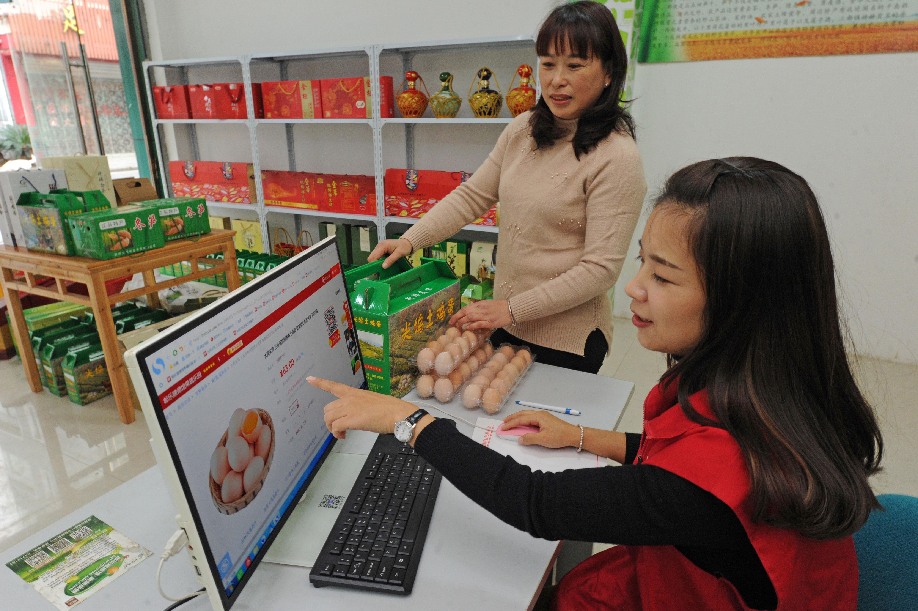Expanding e-commerce promotes the sales of agricultural products and helps increase the income of rural farmers. Statistics show that the per capita disposable income of rural residents stood at 7,142 yuan in the first half of 2019, up by 8.8 percent.

A worker (R) of ule.com, an e-commerce platform of China Post, introduces on-line selling of eggs to a farmer in Jiande, east China's Zhejiang Province, Nov. 24, 2017. (Photo: Xinhua)
China's rural e-commerce has proliferated. The number of Taobao villages, each home to more than 100 online stores and annual e-commerce transactions of over 10 million yuan, has grown to 4,310, covering 250 million people in 25 provinces.
Last year, the total online sales from Taobao villages and towns exceeded 700 billion yuan.
Lizhuang town in east China’s Shandong province has 17 Taobao villages, which produce more than 80 percent of the country's rope and netting. The internet connects local products with a vast market and allows the residents to work at home and make money.
The average age of residents in these Taobao villages is 35, compared with an average age of over 65 in the past when young laborers left their hometowns to find employment in cities.
More young people and college graduates now return to the countryside to secure jobs, bringing hope to the rural areas, said Ma Yun, the founder of e-commerce giant Taobao.
The rural areas have attracted more young people by improving the ecological environment, traffic and social insurance. Meanwhile, China rolls out incentive policies to encourage young people who had worked elsewhere to return home and start businesses online.


